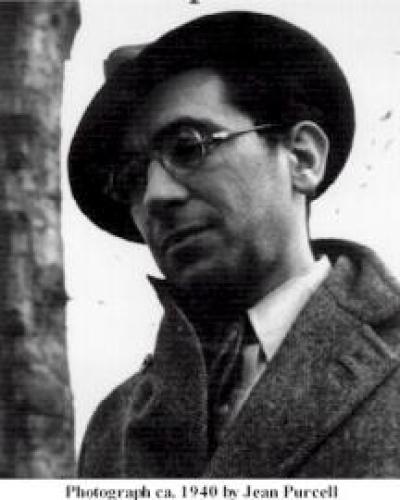Fearing was born in Oak Park, Illinois, now a Chicago neighborhood. His father was an attorney, though the family broke up a year after Fearing was born and he moved in with an aunt. He was educated at the Universities of Illinois and Wisconsin and moved to New York in 1924. There he supported himself with a series of brief jobs, usually only working at most for a few months. He sold pants in a department store, worked for the WPA, for Time magazine, for the United Jewish Appeal, and for the Federation of Jewish Philanthropies. He also published pulp fiction, both detective novels published under his own name and soft-core pornography published under the pseudonym Kirk Wolff. After 1933, when he was married, and until 1942, when the marriage disintegrated, his wife Rachel was the reliable breadwinner. Fearing himself was notoriously unkempt and a serious alcoholic.
Meanwhile, from the time he arrived in New York he published poetry steadily and wrote serious fiction, placing over forty poems in journals like New Masses before publishing his first book of poetry in 1929. With the advent of the Great Depression, he was drawn to the Communist Left, though he remained an irreverent and iconoclastic fellow traveler. His revolutionary and anticapitalist 1935 Poems helped define a dynamic relation between proletarian poetry and experimental modernism. It included several exuberant, Whitmanesque social satires focused on the mass culture of consumer capitalism and successfully employed modernist techniques for political ends. The book was also devoted to the poor, but Fearing was simultaneously ruthless about all the idealizations that drive self-delusion in modern culture. His one great commercial success was his 1946 novel, The Big Clock, which was made into a film by Paramount. In his 1956 New and Selected Poems, he attacked the anticommunist witch hunts in both prose and verse.

